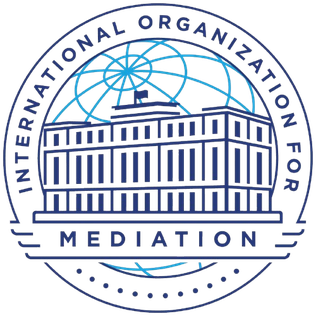ENA - ENA English
Headlines
Ethiopian Airlines Commences New Flight Service to Porto in Portugal
Jul 2, 2025 439
Addis Ababa, July 2, 2025 (ENA) --- Ethiopian Airlines announced the commencement of a new passenger flight service to Porto, Portugal, effective as of today. In a colorful event attended by ambassadors, ministers, and Ethiopian Airlines Executives at Ethiopian Skylight Hotel, Ethiopian marked the commencement of its new four times weekly passenger service to Porto, Portugal today. This new service will include a single stop via Madrid, Spain. The introduction of this flight aims to offer travel options and enhances seamless connectivity for passengers in the area, furthering Ethiopian Airlines' regional expansion across Europe. The new flight will operate four times a week with the B787 Dreamliner. Group Chief Executive Officer of Ethiopian Airlines said during the flight inaugural event this evening, the new flight to Porto plays an important role in connecting Portugal with Africa, providing a seamless service for passengers traveling to Europe. Portuguese Ambassador to Ethiopia, Luisa Fragoso, remarked that Ethiopia and Portugal share a long-standing friendship. She emphasized that the commencement flights to Porto will enhance the bond between the two nations by fostering economic connections and promoting interactions among their citizens. Ethiopian Airlines has been providing flight services to Lisbon, the capital of Portugal, through codeshare flights via London, Milan, and other nearby cities. Currently, Ethiopian Airlines operates approximately 140 weekly passenger flights across Europe to 22 destinations. Additionally, the airline serves 8 cargo destinations in Europe. With the addition of this new passenger flight service, Ethiopian Airlines reinforces its position in the region while fostering stronger ties between the two regions and beyond.
Health Minister Calls for Strengthening Field Epidemiology Workforce to Tackle Global Health Threats
Jul 2, 2025 341
Addis Ababa, July 2, 2025 (ENA) -- The Minister of Health Dr. Mekdes Daba emphasized urgent need to strengthen the field epidemiology workforce to effectively combat global health threats. The 4th Ethiopia Field Epidemiology and Laboratory Training Program (FELTP) and Scientific Conference is underway in Addis Ababa from July 1st to 4th, 2025, at the Adwa Victory Memorial Museum under the theme: “Public Health in a Rapidly Changing World: The Role of the Field Epidemiology Workforce in Health Sector Transformation.” In her opening address to the conference, Dr. Mekdes praised the FELTP program, which trains public health professionals to detect and respond to health emergencies. The minister emphasized that graduates from this program are essential for timely and effective responses to communities. Stating the program's success in building local capacity, which is vital for health security, the minister stressed that "learning by doing" approach allows trainees to engage directly in outbreak investigations and data analysis. Dr. Mekdes also affirmed the government's commitment to ongoing professional development and the integration of research into practice. She also noted the growing role of digital technology and data management in epidemiology, encouraging innovation in surveillance and response. The minister noted that field epidemiologists must prepare themselves for new challenges as we move post COVID-19, mentioning that various other infectious and non-infectious diseases have arisen. Kora Tushune, State Minister of Education, stated that the existing health system cannot be improved merely by closing borders. He added it requires integration into the health system, and a health curriculum that aligns with international standards is essential. Ethiopia is making every effort to enhance and develop training facilities that align with global standards, suited to present circumstances and can address various health-related challenges, he said. Director General of the Ethiopian Public Health Institute (EPHI), Mesay Hailu characterized the Ethiopian epidemiology and laboratory training program as a pivotal initiative aimed at equipping public health professionals with the skills to address real public health challenges through epidemiological methods. He stated that the program has strengthened public health systems and security by enabling faster responses to health concerns. The program facilitated informed decision-making through research and investigation, he added. Patrick Okumu Abok, World Health Organization’s (WHO) Team Leader for the Emergency Preparedness and Response Cluster in Ethiopia noted that the initiative was established to improve emergency health response standards. According to him, the program was designed to provide practical training in field epidemiology, which has led to a significant progress in Ethiopia's fight against infectious diseases such as cholera, measles, and malaria. The conference showcased Ethiopia's commitment to advancing public health amid global challenges. Participants of the conference included representatives from WHO, Africa CDC, donors, partner universities and colleges, as well as private and non-governmental health organizations to foster collaborations, and tackle pressing issues such as climate change and digital health.
Some 40 Professionals of NISS Receive Int'l Certifications on Aviation Security Quality Control, Risk Management
Jul 2, 2025 422
Addis Ababa, July 2, 2025 (ENA) -- Forty professionals from the National Intelligence and Security Service (NISS), trained in Aviation Security Quality Control and Risk Management, have obtained international certifications. The organization tasked with supervising the comprehensive aviation security operations in Ethiopia has partnered with the International Civil Aviation Organization (ICAO) to grant international certification to 40 individuals who have undergone training in aviation security quality control and aviation risk management, NISS stated in a press release it sent to ENA. It is worth noting that after twelve years, ICAO conducted an audit of Ethiopia's aviation security practices and confirmed that there are no security issues within the country. Subsequently, leveraging the positive relationship and collaboration established with the Civil Aviation Security Main Department of NISS, training was held for the first time in Ethiopia from June 16 to July 1, 2025, facilitated by experts from ICAO. The trainers from the ICAO indicated that the international certification enables the airline to perform aviation security quality control operations in all nations where it operates, affirming that the professionals have successfully completed the training, NISS stated in a press release. It further emphasized that the knowledge acquired in the training will not only allow the institution to execute its national mission with high level of efficiency, but it can also be regarded as a notable indication of the special focus Ethiopia has been placing on the aviation security sector. The responsibility for implementing robust quality control and ensuring preparedness for aviation security lies with each member state of the International Civil Aviation Organization. This approach will guarantee the safety of the aviation sector in line with international standards, NISS underlined. The knowledge, skills, and mindset acquired through the training will significantly contribute to the vision and overall institutional strategy aimed at establishing a global presence in the aviation security field, thereby enhancing the competitiveness of Ethiopian Airlines and securing national advantages, the press release stated.
Ethiopian Diaspora Spearheads Innovation, Economic Growth, Says Ambassador Fitsum
Jul 2, 2025 392
Addis Ababa, July 2, 2025 (ENA) – The Director General of Ethiopian Diaspora Service, Ambassador Fitsum Arega underscored the pivotal and escalating role of the Ethiopian diaspora in fostering the nation’s innovation landscape and propelling its economic growth. Speaking on recent developments concerning diaspora engagement, he noted how their engagement, particularly through enhanced foreign currency inflows and strategic partnerships, is significantly contributing to Ethiopia's development agenda. The ambassador also noted the profound positive impact of the second phase of the Homegrown Economic Reform Program. This initiative has been particularly successful in boosting foreign currency inflows by channeling remittances, previously routed through informal channels, into legal means. "That's a big win for the diaspora," Ambassador Fitsum stated. "Now they can support their families more securely and benefit from better exchange rates." As a direct result of these reforms, Ethiopia’s foreign currency reserves have seen significant improvement. "The country secured 5.1 billion in remittances this year, up from 4.4 billion USD last year," the ambassador revealed, attributing this substantial growth to improved financial regulations and greater diaspora involvement. The Director General also pointed to dynamic partnerships with international organizations such as the International Organization for Migration (IOM) and Deutsche Gesellschaft für Internationale Zusammenarbeit (GIZ). These collaborations, he explained, are instrumental in strengthening diaspora engagement and unlocking new investment opportunities for Ethiopians living abroad. Beyond formal initiatives, many diaspora members are independently mobilizing to offer vital services, particularly within the health sector. He cited the "Heart Attack Ethiopia" initiative as a leading example and through this project, medical professionals travel to Ethiopia every three months to provide specialized treatment, train local staff, and donate critical medical equipment, thereby ensuring both skill development and technology transfer. Fisum further highlighted inspiring stories of diaspora contributions across diverse sectors. "Just last week," he shared, "renowned chef Marcus Samuelsson was training students at the Hotel and Tourism Institute in Addis Ababa." Samuelsson’s restaurant in the capital, the ambassador noted, is just one of many diaspora-led ventures driving innovation in hospitality and tourism. In the academic sphere, university lecturers from the diaspora are playing a key role in knowledge-sharing efforts across the country. Simultaneously, in the business world, many entrepreneurs are investing in high-growth sectors. Ambassador Fitsum particularly underscored the profound influence of diaspora investment in Ethiopia’s rapidly growing FinTech industry. "More than 20 FinTech companies have been registered by the National Bank," he said, noting that diaspora-driven initiatives are accelerating the growth of mobile money, digital payment platforms, and e-financial services. The telecommunications sector is also reaping significant benefits, with diaspora professionals actively managing call centers, FinTech operations, and digital finance platforms. Furthermore, diaspora experts with extensive global experience are contributing to critical institutional developments within Ethiopia, which includes their involvement in the establishment of the Ethiopian Securities Exchange (ESX), the formation of a national stock market authority, and the design of long-term financing mechanisms. These concerted efforts, Ambassador Fitsum concluded, are playing a pivotal role in modernizing Ethiopia’s economy and building lasting institutional capacity for the nation’s future.
Ethiopian Gov’t Concludes MoU with its Official Creditor Committee Under G20 Common Framework
Jul 2, 2025 907
Addis Ababa, July 2, 2025 (ENA) – Ethiopia’s Ministry of Finance announced the conclusion of an agreement on a Memorandum of Understanding (MoU) with its Official Creditor Committee (OCC), formalizing the debt treatment agreed in principle in March 2025, offering a relief of over 3.5 billion USD. The agreement represents an important milestone in Ethiopia's journey towards achieving long-term public debt sustainability and brings to a successful conclusion years long negotiation process. Ethiopia extended its heartfelt gratitude to all members of the OCC, particularly to the committee's co-chairs, China and France, for their steadfast support and collaboration in facilitating Ethiopia's debt treatment endeavors. Following the signing of this MoU, its terms will be implemented through bilateral agreements with each member of the OCC. Ethiopia’s Finance State Minister, Eyob Tekalign Tolina, issued the following statement: “Ethiopia remains confident that the collaborative and pragmatic spirit that has prevailed so far will help expedite the process of finalizing bilateral agreements. Ethiopia continues to engage in good faith with all its other participating external creditors and seeks to conclude restructuring agreements on terms compatible with the country's need for debt relief and the comparability of treatment principle.” The Ethiopian Government is hopeful that the formalization of its debt treatment with the OCC will further bolster Ethiopia's efforts to reach agreement with participating external creditors, including its bondholders, Eyob added.
Politics
PM Abiy to Appear before Parliament & Respond to Inquiries of MPs
Jul 2, 2025 322
Addis Ababa, July 2, 2025 (ENA) -- Prime Minister Abiy Ahmed has scheduled to appear before the House of People’s Representatives (HPR) tomorrow and provide detailed explanations and respond to questions from members of the House. The session, marking the 42nd regular meeting of the HPR, will also focus on the performance of government’s concluding budget year. During the meeting, the Prime Minister is expected to address key issues related to the performance of the 2017 Ethiopian budget year and respond to questions that will be raised from members of the house. In addition, the House is set to deliberate on and approve the draft federal government budget for the 2018 Ethiopian fiscal year. The session will be attended by a range of invited guests, including ambassadors of various countries, representatives of international organizations, religious leaders, prominent figures, and leaders of opposition parties, ENA learnt.
Mali Army Says 80 Fighters Killed in Coordinated Attacks
Jul 2, 2025 255
Addis Ababa, July 2, 2025 (ENA)— An al-Qaeda affiliate earlier claimed responsibility for ‘coordinated and high-quality attacks’ in Mali. In the early hours of Tuesday, the armed terrorist groups launched coordinated strikes on Malian Armed Forces (FAMa) positions in the western region, including the towns of Kayes, Nioro, Sandare, Gogui and Diboli, said FAMaTV, the military's television channel, citing the Armed Forces' Directorate of Information and Public Relations (DIRPA). However, Mali’s army, in an official statement, claimed that than 80 terrorists were killed in attacks targeting several localities in central and western part of the country. "The enemies of peace first attacked civilians and several positions of the defense and security forces. We were confronted with simultaneous and coordinated attacks backed by sponsors whose presence was confirmed during today's operations," said Souleymane Dembele, head of DIRPA. "The enemy suffered heavy losses wherever it attempted to strike the FDS. The provisional toll indicates that more than 80 terrorists were killed, and a significant cache of weapons, ammunition, motorcycles, and vehicles was recovered," he said. The attacks occurred just days after the killing of several local militant leaders and the surrender of around 10 fighters from the Islamic State in the Greater Sahara in the northern part of the country.
Africa Must Prioritize Projects that Drive Regional, Continental Integration: AU
Jul 2, 2025 539
Addis Ababa, July 2, 2025 (ENA) -- The African Union (AU) has called on its member states to prioritize development projects that promote regional and continental integration as the continent enters the second phase of implementing Agenda 2063. In an exclusive interview with ENA, Botho Kebabonye, Director of Strategic Planning and Delivery at the African Union Commission, emphasized the importance of aligning national efforts with continental and global development agendas. She highlighted that Africa’s strategies are increasingly in sync with frameworks such as the United Nations Sustainable Development Goals (SDGs) and Agenda 2063, the AU’s blueprint for inclusive and sustainable development. “Agenda 2063 is central to building a peaceful, united, and prosperous Africa. As we begin the second ten-year implementation phase, one of our key priorities is to ensure equitable income distribution across the continent,” the director stated. Reflecting on the achievements of the first implementation decade, she stressed the need to harness Africa’s vast natural and human resources to sustain economic growth and development. According to the director, integration-focused projects, particularly the African Continental Free Trade Area (AfCFTA), must be fully implemented to strengthen intra-African trade and drive economic unity. "For us to achieve the peaceful Africa we envision, we must resolve conflicts amicably and peacefully. Integration is a key and flagship initiatives like the AfCFTA are crucial to that process,” she said. She underscored that effective delivery on national development plans is essential to realizing the goals of Agenda 2063. “We are seeing encouraging progress, greater coordination among member states, better alignment with the SDGs, and growing momentum in the domestication of Agenda 2063,” Kebabonye noted. However, she emphasized that awareness and commitment from African stakeholders are vital, especially in mobilizing domestic resources to finance the agenda. She urged member states to align their national development strategies with continental priorities to ensure cohesive and impactful implementation. Kebabonye also pointed to the positive strides being made to improve connectivity across the continent, noting that bolstering trade among African nations is both timely and necessary. Despite the progress, the director warned that climate change presents a serious obstacle to the successful execution of Agenda 2063. “Climate change is a global challenge, but its implications are particularly severe for Africa. We need resilient systems that can withstand its impact,” she said. The director also called on AU members to accelerate implementation, strengthen monitoring and evaluation frameworks, address current gaps with targeted interventions, and ensure practical, result-oriented actions. Echoing this vision, Ethiopia’s State Minister of Planning and Development, Tirumar Abate, affirmed that Ethiopia is undertaking strategic projects to enhance regional connectivity in line with the AU’s agenda. The state minister noted that the country is aligning its national development priorities with Agenda 2063 to contribute meaningfully to the continental transformation. According to the African Union, the second ten-year implementation phase of Agenda 2063 will run from 2024 to 2033.
Leadership in Action: Prime Minister Abiy Ahmed’s Key Engagements in June 2025
Jul 1, 2025 515
In June 2025, Prime Minister Abiy Ahmed spearheaded a series of high-impact initiatives, reflecting his government’s unwavering commitment to advance economic transformation, technological innovation, strategic diplomacy, and sustainable national development. Throughout the month, the Premier also held wide-ranging consultations with key stakeholders to promote a culture of constructive dialogue and democratic political discourse. Notably, the Prime Minister, alongside Nigerian Vice President Kashim Shettima, senior government officials, and members of the diplomatic corps—officially launched this year’s Green Legacy Initiative program, reaffirming Ethiopia’s leadership in the climate resilience economy. In the early days of June 2025, Prime Minister Abiy Ahmed bestowed upon Mr. Bill Gates the Ethiopia Special Order — the highest honor bestowed by the Ethiopian state in a ceremony held at the National Palace earlier tonight. The prestigious recognition celebrates the profound and enduring impact of the Gates Foundation’s transformative work over the past 25 years in Ethiopia. The Foundation’s efforts in healthcare, agriculture, digital ID, and innovation were highlighted, along with its strong, respectful partnership with Ethiopia. The Rural Corridors Initiative—launched to enhance the livelihoods of rural communities—is now being scaled up nationwide. In June, Prime Minister Abiy Ahmed inaugurated the construction of model rural villages across various zones in the Central Ethiopia Region as a key component of this initiative. These affordable villages, built using locally sourced materials, aim to provide farmers with healthy, dignified living conditions. Surrounding areas are also undergoing a remarkable transformation, with thousands of hectares brought under irrigation, high-yield maize seed multiplication underway, and the cultivation of fruits and vegetables in full swing—turning a region once burdened by floods and droughts into a beacon of climate-resilient and sustainable development. Among the key highlights of June, Prime Minister Abiy Ahmed sat down for an in-depth and a wide-ranging four-part interview with Ethiopian Television, where the Premier reflected on the country's journey over the past seven years. In this wide-ranging conversation, he addressed both the achievements and challenges across all sectors, while articulating a clear vision for Ethiopia’s continued progress toward growth, lasting peace, and prosperity. As part of his diplomatic engagements in June 2025, Prime Minister Abiy Ahmed welcomed Nigerian businessman Aliko Dangote for high-level talks focused on strategic investment opportunities tailored to address Ethiopia’s key development priorities. The Prime Minister expressed optimism for sustained and deepened cooperation moving forward. Moreover, Prime Minister Abiy Ahmed held talks with U.S. Marine Corps and AFRICOM Commander, General Michael Langley for discussions on bilateral and regional issues of mutual interest. Continuing his bilateral and multilateral diplomatic approach, Prime Minister Abiy Ahmed also met with Director General Rafael Mariano Grossi of the International Atomic Energy Agency (IAEA). The IAEA’s support in Ethiopia spans a wide range of sectors, including cancer care, veterinary health, tsetse eradication, nuclear engineering, and regulatory frameworks. Thus, the sides discussed ongoing assistance and opportunities for future collaboration. In a continued effort to foster a culture of dialogue and constructive politics domestically, Prime Minister Abiy Ahmed held extensive consultations in June with a broad range of key stakeholders. These included leaders of competing political parties, members of the intellectual and academic community, art community members, teachers, media professionals, health sector representatives, and other societal actors. The discussions focused on identifying opportunities and progress within each sector, while also addressing existing gaps and challenges. Another sphere where Prime Minister Abiy Ahmed paid special attention and set various directions in June 2025 was the development of the technology sector and the nation’s innovation endeavors. To this effect, the official launch of the Permanent Exhibition Section at the Science Museum took place in the presence of Prime Minister Abiy Ahmed. This exciting milestone features five immersive exhibition areas focused on artificial intelligence, climate change and Ethiopia’s response, agriculture, hydropower, aeronautics, and aviation — showcasing the country’s commitment to harnessing science and technology for development. Also unveiled is the first-of-its-kind Planetarium Dome. Spanning over 1,000 square meters with a diameter of 36 meters, the dome is equipped with state-of-the-art 4K digital projection technology and can accommodate more than 200 visitors at a time. The planetarium delivers breathtaking, high-resolution visuals that bring the universe closer than ever before. On the environmental front, Prime Minister Abiy Ahmed officially launched this year’s Green Legacy Initiative in June under the theme 'Renewal through Planting.' As one of Ethiopia’s flagship national programs, the initiative stands as a powerful symbol of the country’s dedication to environmental restoration, climate resilience, and sustainable development. Overall, June also marked a dynamic month of action for Prime Minister Abiy Ahmed, characterized by high-level engagements and decisive initiatives across political, economic, social, environmental, and technological sectors. These multifaceted efforts not only advanced Ethiopia’s national development agenda but also reinforced the country’s growing relevance and leadership on the global stage.
Ethiopia Calls for Seville Commitment to Build Upon Addis Ababa's Action Agenda
Jul 1, 2025 622
Addis Ababa July 1, 2025 (ENA) -- Ethiopia’s Minister of Agriculture delivered the national statement at the Fourth International Conference on Financing for Development (FfD4) in Sevilla, Spain, as Head of the Ethiopian delegation. In his remarks, the Minister called on the international community to fulfill the commitments made under the Addis Ababa Action Agenda (AAAA), adopted during the FfD3 conference held in Addis Ababa ten years ago. He welcomed the broad consensus reflected in the new Sevilla Commitment, describing it as a timely and necessary continuation of AAAA. The Minister further stressed the need to build on the gains of Addis Ababa Action Agenda and Ethiopia hopes that Sevilla Commitment will resolve Addis Ababa’s Action Agenda (AAAA) implementation challenges. Girma further warned that the staggering 4 trillion USD SDG financing gap reveals a global failure to translate promises into action, leaving developing countries burdened by unsustainable debt, reduced development finance, and escalating challenges stemming from climate change and geopolitical instability. He emphasized the urgency of addressing unsustainable debt by advancing fair global taxation on multinational corporations and establishing a sovereign debt mechanism under the auspices of the United Nations. Minister Girma emphasized the need to expand access to grant-based and highly concessional finance, aligned with national development plans, particularly for developing countries. He also underscored the importance of dedicated support mechanisms for countries vulnerable to external shocks, in order to prevent abrupt financing disruptions and safeguard development trajectories. The Minister called for unlocking and disbursing available development and climate finance with a focus on infrastructure and decent job creation—especially in Africa, where the demographic potential remains largely untapped. Calling the Sevilla Commitment a critical opportunity to realign global efforts, Girma reaffirmed Ethiopia’s unwavering support for multilateral cooperation and expressed hope that future global forums will reflect measurable progress rather than continued gaps between ambition and action. At this Fourth International Conference on Financing for Development, Ethiopia’s also addressed a high-level Ministerial Meeting held in parallel to the main plenary under the theme “Revitalizing International Development Cooperation.” In his remarks, Minister Girma underscored that strengthened international cooperation remains the only viable path to achieving the Sustainable Development Goals. He urged the global community to uphold the spirit of shared responsibility and solidarity in tackling today’s development challenges.
Foreign Affairs State Minister Notes Steady Growth in Ethiopia’s International Participation, Visibility
Jul 1, 2025 483
Addis Ababa, July 1, 2025 (ENA)—State Minister of Foreign Affairs, Ambassador Berhanu Tsegaye underscored that Ethiopia’s recognition and participation in international platforms is steadily growing. The National Committee, composed of representatives from various federal, regional, and Addis Ababa city administration, deliberated on the ongoing preparations for international events scheduled to be held in Addis Ababa in the coming months. During the discussions, Ambassador Berhanu, who is also Chair of the National Committee, emphasized the need for concerted efforts among various stakeholders to ensure the successful execution of the upcoming international conferences in Addis Ababa. The state minister emphasized that leveraging these annual global events can play a key role in enhancing Ethiopia’s visibility and promoting the country through conference tourism. Ambassador Berhanu further noted that the invitation received to host the 2nd UN Food Systems Summit (UNFSS+4) offers a valuable opportunity to Ethiopia to share its achievements and experiences in ensuring food security while drawing lessons from other nations. The consecutive international conferences that Ethiopia hosts signify the growing recognition and participation of the country in global platforms, he added. The state minister confirmed that the 2nd UN Food Systems Summit (UNFSS+4) will be held from 27–29 July 2025, followed by the 2nd Africa Climate Summit 2.0 (ACS2) from 5–10 September 2025. Ambassador Berhanu confirmed that preparations are well underway to ensure both summits are conducted smoothly and effectively.
AUC Chairperson Sends Independence Day Message to Somalia
Jul 1, 2025 652
Addis Ababa, July 1, 2025 (ENA)— The Chairperson of the African Union Commission, Mahmoud Ali Youssouf, extends his warmest congratulations to the Government and people of the Federal Republic of Somalia on the occasion of the 65th anniversary of their independence. The Chairperson recalled that this historic day stands as a proud testament to the unity, resilience, and determination of the Somali people, who on 1 July 1960 came together in pursuit of sovereignty, dignity, and self-determination. He further elaborated that the journey since has been marked by courage, perseverance, and a commitment to building a peaceful, democratic, and prosperous Somalia. "As you commemorate this important milestone, I pay tribute to the generations of Somalis whose sacrifices made this day possible. I reaffirm the African Union’s enduring solidarity with Somalia as you continue to advance your national priorities," said the Chairperson. May this Independence Day renew the spirit of unity among the Somali people and inspire a new generation to carry forward the legacy of those whose vision and bravery secured independence, the chairperson stated.
3rd Meeting of BRICS Sherpas, Sous Sherpas for 2025 Commences in Rio de Janeiro
Jul 1, 2025 584
Addis Ababa, July 1, 2025 (ENA) -- The Third Meeting of BRICS Sherpas and Sous Sherpas for 2025 commenced in Rio de Janeiro, Brazil. Ethiopia is participating in the meeting, which is deliberating on a range of issues, including negotiating the draft BRICS Leaders Declaration. The Ethiopian delegation congratulated Brazil for successfully leading the activities of BRICS during the year of its chairmanship. Recognizing the year-long activities and achievements with regard to issues such as global governance, trade, investment and finance, climate change, artificial intelligence and global health, the delegation expressed its readiness to work towards consensus. The meeting will continue to deliberate on various agenda items that lay the groundwork for the upcoming Seventeenth BRICS Leaders’ Summit which will be held in Riode Janeiro, Brazil, from 06-07 July 2025.
Politics
PM Abiy to Appear before Parliament & Respond to Inquiries of MPs
Jul 2, 2025 322
Addis Ababa, July 2, 2025 (ENA) -- Prime Minister Abiy Ahmed has scheduled to appear before the House of People’s Representatives (HPR) tomorrow and provide detailed explanations and respond to questions from members of the House. The session, marking the 42nd regular meeting of the HPR, will also focus on the performance of government’s concluding budget year. During the meeting, the Prime Minister is expected to address key issues related to the performance of the 2017 Ethiopian budget year and respond to questions that will be raised from members of the house. In addition, the House is set to deliberate on and approve the draft federal government budget for the 2018 Ethiopian fiscal year. The session will be attended by a range of invited guests, including ambassadors of various countries, representatives of international organizations, religious leaders, prominent figures, and leaders of opposition parties, ENA learnt.
Mali Army Says 80 Fighters Killed in Coordinated Attacks
Jul 2, 2025 255
Addis Ababa, July 2, 2025 (ENA)— An al-Qaeda affiliate earlier claimed responsibility for ‘coordinated and high-quality attacks’ in Mali. In the early hours of Tuesday, the armed terrorist groups launched coordinated strikes on Malian Armed Forces (FAMa) positions in the western region, including the towns of Kayes, Nioro, Sandare, Gogui and Diboli, said FAMaTV, the military's television channel, citing the Armed Forces' Directorate of Information and Public Relations (DIRPA). However, Mali’s army, in an official statement, claimed that than 80 terrorists were killed in attacks targeting several localities in central and western part of the country. "The enemies of peace first attacked civilians and several positions of the defense and security forces. We were confronted with simultaneous and coordinated attacks backed by sponsors whose presence was confirmed during today's operations," said Souleymane Dembele, head of DIRPA. "The enemy suffered heavy losses wherever it attempted to strike the FDS. The provisional toll indicates that more than 80 terrorists were killed, and a significant cache of weapons, ammunition, motorcycles, and vehicles was recovered," he said. The attacks occurred just days after the killing of several local militant leaders and the surrender of around 10 fighters from the Islamic State in the Greater Sahara in the northern part of the country.
Africa Must Prioritize Projects that Drive Regional, Continental Integration: AU
Jul 2, 2025 539
Addis Ababa, July 2, 2025 (ENA) -- The African Union (AU) has called on its member states to prioritize development projects that promote regional and continental integration as the continent enters the second phase of implementing Agenda 2063. In an exclusive interview with ENA, Botho Kebabonye, Director of Strategic Planning and Delivery at the African Union Commission, emphasized the importance of aligning national efforts with continental and global development agendas. She highlighted that Africa’s strategies are increasingly in sync with frameworks such as the United Nations Sustainable Development Goals (SDGs) and Agenda 2063, the AU’s blueprint for inclusive and sustainable development. “Agenda 2063 is central to building a peaceful, united, and prosperous Africa. As we begin the second ten-year implementation phase, one of our key priorities is to ensure equitable income distribution across the continent,” the director stated. Reflecting on the achievements of the first implementation decade, she stressed the need to harness Africa’s vast natural and human resources to sustain economic growth and development. According to the director, integration-focused projects, particularly the African Continental Free Trade Area (AfCFTA), must be fully implemented to strengthen intra-African trade and drive economic unity. "For us to achieve the peaceful Africa we envision, we must resolve conflicts amicably and peacefully. Integration is a key and flagship initiatives like the AfCFTA are crucial to that process,” she said. She underscored that effective delivery on national development plans is essential to realizing the goals of Agenda 2063. “We are seeing encouraging progress, greater coordination among member states, better alignment with the SDGs, and growing momentum in the domestication of Agenda 2063,” Kebabonye noted. However, she emphasized that awareness and commitment from African stakeholders are vital, especially in mobilizing domestic resources to finance the agenda. She urged member states to align their national development strategies with continental priorities to ensure cohesive and impactful implementation. Kebabonye also pointed to the positive strides being made to improve connectivity across the continent, noting that bolstering trade among African nations is both timely and necessary. Despite the progress, the director warned that climate change presents a serious obstacle to the successful execution of Agenda 2063. “Climate change is a global challenge, but its implications are particularly severe for Africa. We need resilient systems that can withstand its impact,” she said. The director also called on AU members to accelerate implementation, strengthen monitoring and evaluation frameworks, address current gaps with targeted interventions, and ensure practical, result-oriented actions. Echoing this vision, Ethiopia’s State Minister of Planning and Development, Tirumar Abate, affirmed that Ethiopia is undertaking strategic projects to enhance regional connectivity in line with the AU’s agenda. The state minister noted that the country is aligning its national development priorities with Agenda 2063 to contribute meaningfully to the continental transformation. According to the African Union, the second ten-year implementation phase of Agenda 2063 will run from 2024 to 2033.
Leadership in Action: Prime Minister Abiy Ahmed’s Key Engagements in June 2025
Jul 1, 2025 515
In June 2025, Prime Minister Abiy Ahmed spearheaded a series of high-impact initiatives, reflecting his government’s unwavering commitment to advance economic transformation, technological innovation, strategic diplomacy, and sustainable national development. Throughout the month, the Premier also held wide-ranging consultations with key stakeholders to promote a culture of constructive dialogue and democratic political discourse. Notably, the Prime Minister, alongside Nigerian Vice President Kashim Shettima, senior government officials, and members of the diplomatic corps—officially launched this year’s Green Legacy Initiative program, reaffirming Ethiopia’s leadership in the climate resilience economy. In the early days of June 2025, Prime Minister Abiy Ahmed bestowed upon Mr. Bill Gates the Ethiopia Special Order — the highest honor bestowed by the Ethiopian state in a ceremony held at the National Palace earlier tonight. The prestigious recognition celebrates the profound and enduring impact of the Gates Foundation’s transformative work over the past 25 years in Ethiopia. The Foundation’s efforts in healthcare, agriculture, digital ID, and innovation were highlighted, along with its strong, respectful partnership with Ethiopia. The Rural Corridors Initiative—launched to enhance the livelihoods of rural communities—is now being scaled up nationwide. In June, Prime Minister Abiy Ahmed inaugurated the construction of model rural villages across various zones in the Central Ethiopia Region as a key component of this initiative. These affordable villages, built using locally sourced materials, aim to provide farmers with healthy, dignified living conditions. Surrounding areas are also undergoing a remarkable transformation, with thousands of hectares brought under irrigation, high-yield maize seed multiplication underway, and the cultivation of fruits and vegetables in full swing—turning a region once burdened by floods and droughts into a beacon of climate-resilient and sustainable development. Among the key highlights of June, Prime Minister Abiy Ahmed sat down for an in-depth and a wide-ranging four-part interview with Ethiopian Television, where the Premier reflected on the country's journey over the past seven years. In this wide-ranging conversation, he addressed both the achievements and challenges across all sectors, while articulating a clear vision for Ethiopia’s continued progress toward growth, lasting peace, and prosperity. As part of his diplomatic engagements in June 2025, Prime Minister Abiy Ahmed welcomed Nigerian businessman Aliko Dangote for high-level talks focused on strategic investment opportunities tailored to address Ethiopia’s key development priorities. The Prime Minister expressed optimism for sustained and deepened cooperation moving forward. Moreover, Prime Minister Abiy Ahmed held talks with U.S. Marine Corps and AFRICOM Commander, General Michael Langley for discussions on bilateral and regional issues of mutual interest. Continuing his bilateral and multilateral diplomatic approach, Prime Minister Abiy Ahmed also met with Director General Rafael Mariano Grossi of the International Atomic Energy Agency (IAEA). The IAEA’s support in Ethiopia spans a wide range of sectors, including cancer care, veterinary health, tsetse eradication, nuclear engineering, and regulatory frameworks. Thus, the sides discussed ongoing assistance and opportunities for future collaboration. In a continued effort to foster a culture of dialogue and constructive politics domestically, Prime Minister Abiy Ahmed held extensive consultations in June with a broad range of key stakeholders. These included leaders of competing political parties, members of the intellectual and academic community, art community members, teachers, media professionals, health sector representatives, and other societal actors. The discussions focused on identifying opportunities and progress within each sector, while also addressing existing gaps and challenges. Another sphere where Prime Minister Abiy Ahmed paid special attention and set various directions in June 2025 was the development of the technology sector and the nation’s innovation endeavors. To this effect, the official launch of the Permanent Exhibition Section at the Science Museum took place in the presence of Prime Minister Abiy Ahmed. This exciting milestone features five immersive exhibition areas focused on artificial intelligence, climate change and Ethiopia’s response, agriculture, hydropower, aeronautics, and aviation — showcasing the country’s commitment to harnessing science and technology for development. Also unveiled is the first-of-its-kind Planetarium Dome. Spanning over 1,000 square meters with a diameter of 36 meters, the dome is equipped with state-of-the-art 4K digital projection technology and can accommodate more than 200 visitors at a time. The planetarium delivers breathtaking, high-resolution visuals that bring the universe closer than ever before. On the environmental front, Prime Minister Abiy Ahmed officially launched this year’s Green Legacy Initiative in June under the theme 'Renewal through Planting.' As one of Ethiopia’s flagship national programs, the initiative stands as a powerful symbol of the country’s dedication to environmental restoration, climate resilience, and sustainable development. Overall, June also marked a dynamic month of action for Prime Minister Abiy Ahmed, characterized by high-level engagements and decisive initiatives across political, economic, social, environmental, and technological sectors. These multifaceted efforts not only advanced Ethiopia’s national development agenda but also reinforced the country’s growing relevance and leadership on the global stage.
Ethiopia Calls for Seville Commitment to Build Upon Addis Ababa's Action Agenda
Jul 1, 2025 622
Addis Ababa July 1, 2025 (ENA) -- Ethiopia’s Minister of Agriculture delivered the national statement at the Fourth International Conference on Financing for Development (FfD4) in Sevilla, Spain, as Head of the Ethiopian delegation. In his remarks, the Minister called on the international community to fulfill the commitments made under the Addis Ababa Action Agenda (AAAA), adopted during the FfD3 conference held in Addis Ababa ten years ago. He welcomed the broad consensus reflected in the new Sevilla Commitment, describing it as a timely and necessary continuation of AAAA. The Minister further stressed the need to build on the gains of Addis Ababa Action Agenda and Ethiopia hopes that Sevilla Commitment will resolve Addis Ababa’s Action Agenda (AAAA) implementation challenges. Girma further warned that the staggering 4 trillion USD SDG financing gap reveals a global failure to translate promises into action, leaving developing countries burdened by unsustainable debt, reduced development finance, and escalating challenges stemming from climate change and geopolitical instability. He emphasized the urgency of addressing unsustainable debt by advancing fair global taxation on multinational corporations and establishing a sovereign debt mechanism under the auspices of the United Nations. Minister Girma emphasized the need to expand access to grant-based and highly concessional finance, aligned with national development plans, particularly for developing countries. He also underscored the importance of dedicated support mechanisms for countries vulnerable to external shocks, in order to prevent abrupt financing disruptions and safeguard development trajectories. The Minister called for unlocking and disbursing available development and climate finance with a focus on infrastructure and decent job creation—especially in Africa, where the demographic potential remains largely untapped. Calling the Sevilla Commitment a critical opportunity to realign global efforts, Girma reaffirmed Ethiopia’s unwavering support for multilateral cooperation and expressed hope that future global forums will reflect measurable progress rather than continued gaps between ambition and action. At this Fourth International Conference on Financing for Development, Ethiopia’s also addressed a high-level Ministerial Meeting held in parallel to the main plenary under the theme “Revitalizing International Development Cooperation.” In his remarks, Minister Girma underscored that strengthened international cooperation remains the only viable path to achieving the Sustainable Development Goals. He urged the global community to uphold the spirit of shared responsibility and solidarity in tackling today’s development challenges.
Foreign Affairs State Minister Notes Steady Growth in Ethiopia’s International Participation, Visibility
Jul 1, 2025 483
Addis Ababa, July 1, 2025 (ENA)—State Minister of Foreign Affairs, Ambassador Berhanu Tsegaye underscored that Ethiopia’s recognition and participation in international platforms is steadily growing. The National Committee, composed of representatives from various federal, regional, and Addis Ababa city administration, deliberated on the ongoing preparations for international events scheduled to be held in Addis Ababa in the coming months. During the discussions, Ambassador Berhanu, who is also Chair of the National Committee, emphasized the need for concerted efforts among various stakeholders to ensure the successful execution of the upcoming international conferences in Addis Ababa. The state minister emphasized that leveraging these annual global events can play a key role in enhancing Ethiopia’s visibility and promoting the country through conference tourism. Ambassador Berhanu further noted that the invitation received to host the 2nd UN Food Systems Summit (UNFSS+4) offers a valuable opportunity to Ethiopia to share its achievements and experiences in ensuring food security while drawing lessons from other nations. The consecutive international conferences that Ethiopia hosts signify the growing recognition and participation of the country in global platforms, he added. The state minister confirmed that the 2nd UN Food Systems Summit (UNFSS+4) will be held from 27–29 July 2025, followed by the 2nd Africa Climate Summit 2.0 (ACS2) from 5–10 September 2025. Ambassador Berhanu confirmed that preparations are well underway to ensure both summits are conducted smoothly and effectively.
AUC Chairperson Sends Independence Day Message to Somalia
Jul 1, 2025 652
Addis Ababa, July 1, 2025 (ENA)— The Chairperson of the African Union Commission, Mahmoud Ali Youssouf, extends his warmest congratulations to the Government and people of the Federal Republic of Somalia on the occasion of the 65th anniversary of their independence. The Chairperson recalled that this historic day stands as a proud testament to the unity, resilience, and determination of the Somali people, who on 1 July 1960 came together in pursuit of sovereignty, dignity, and self-determination. He further elaborated that the journey since has been marked by courage, perseverance, and a commitment to building a peaceful, democratic, and prosperous Somalia. "As you commemorate this important milestone, I pay tribute to the generations of Somalis whose sacrifices made this day possible. I reaffirm the African Union’s enduring solidarity with Somalia as you continue to advance your national priorities," said the Chairperson. May this Independence Day renew the spirit of unity among the Somali people and inspire a new generation to carry forward the legacy of those whose vision and bravery secured independence, the chairperson stated.
3rd Meeting of BRICS Sherpas, Sous Sherpas for 2025 Commences in Rio de Janeiro
Jul 1, 2025 584
Addis Ababa, July 1, 2025 (ENA) -- The Third Meeting of BRICS Sherpas and Sous Sherpas for 2025 commenced in Rio de Janeiro, Brazil. Ethiopia is participating in the meeting, which is deliberating on a range of issues, including negotiating the draft BRICS Leaders Declaration. The Ethiopian delegation congratulated Brazil for successfully leading the activities of BRICS during the year of its chairmanship. Recognizing the year-long activities and achievements with regard to issues such as global governance, trade, investment and finance, climate change, artificial intelligence and global health, the delegation expressed its readiness to work towards consensus. The meeting will continue to deliberate on various agenda items that lay the groundwork for the upcoming Seventeenth BRICS Leaders’ Summit which will be held in Riode Janeiro, Brazil, from 06-07 July 2025.
Social
Health Minister Calls for Strengthening Field Epidemiology Workforce to Tackle Global Health Threats
Jul 2, 2025 341
Addis Ababa, July 2, 2025 (ENA) -- The Minister of Health Dr. Mekdes Daba emphasized urgent need to strengthen the field epidemiology workforce to effectively combat global health threats. The 4th Ethiopia Field Epidemiology and Laboratory Training Program (FELTP) and Scientific Conference is underway in Addis Ababa from July 1st to 4th, 2025, at the Adwa Victory Memorial Museum under the theme: “Public Health in a Rapidly Changing World: The Role of the Field Epidemiology Workforce in Health Sector Transformation.” In her opening address to the conference, Dr. Mekdes praised the FELTP program, which trains public health professionals to detect and respond to health emergencies. The minister emphasized that graduates from this program are essential for timely and effective responses to communities. Stating the program's success in building local capacity, which is vital for health security, the minister stressed that "learning by doing" approach allows trainees to engage directly in outbreak investigations and data analysis. Dr. Mekdes also affirmed the government's commitment to ongoing professional development and the integration of research into practice. She also noted the growing role of digital technology and data management in epidemiology, encouraging innovation in surveillance and response. The minister noted that field epidemiologists must prepare themselves for new challenges as we move post COVID-19, mentioning that various other infectious and non-infectious diseases have arisen. Kora Tushune, State Minister of Education, stated that the existing health system cannot be improved merely by closing borders. He added it requires integration into the health system, and a health curriculum that aligns with international standards is essential. Ethiopia is making every effort to enhance and develop training facilities that align with global standards, suited to present circumstances and can address various health-related challenges, he said. Director General of the Ethiopian Public Health Institute (EPHI), Mesay Hailu characterized the Ethiopian epidemiology and laboratory training program as a pivotal initiative aimed at equipping public health professionals with the skills to address real public health challenges through epidemiological methods. He stated that the program has strengthened public health systems and security by enabling faster responses to health concerns. The program facilitated informed decision-making through research and investigation, he added. Patrick Okumu Abok, World Health Organization’s (WHO) Team Leader for the Emergency Preparedness and Response Cluster in Ethiopia noted that the initiative was established to improve emergency health response standards. According to him, the program was designed to provide practical training in field epidemiology, which has led to a significant progress in Ethiopia's fight against infectious diseases such as cholera, measles, and malaria. The conference showcased Ethiopia's commitment to advancing public health amid global challenges. Participants of the conference included representatives from WHO, Africa CDC, donors, partner universities and colleges, as well as private and non-governmental health organizations to foster collaborations, and tackle pressing issues such as climate change and digital health.
Ethiopia Taking Bold Steps to Expand Cancer Treatment, Research, and Radiation Therapy: DPM Temesgen Tiruneh
Jun 30, 2025 789
Addis Ababa, June 30, 2025 (ENA) --- Deputy Prime Minister Temesgen Tiruneh has affirmed that Ethiopia is taking bold, strategic steps to enhance access to cancer treatment, research, and radiation therapy as part of its broader commitment to strengthening the national healthcare system. Speaking at an international conference co-hosted by the Ministry of Health and the International Atomic Energy Agency (IAEA), themed “Rays of Hope,” the Deputy Prime Minister outlined Ethiopia’s vision for a more responsive, inclusive, and technology-driven health sector. The event, held at the African Union Conference Hall in Addis Ababa, was attended by IAEA Director General Rafael Mariano Grossi, Minister of Health Mekdes Daba, diplomats, ambassadors, and key stakeholders in global health. In his keynote address, Temesgen emphasized the evolving global health landscape and Ethiopia’s determination to build a resilient healthcare system. He cited the Health Extension Program as a major success story, attributing improved service delivery to a growing trained health professional. The deputy prime minister noted that ongoing efforts to integrate advanced technologies into cancer treatment and ensure their safe use under a robust regulatory framework. Expanding radiation therapy through the peaceful use of nuclear technology, he said, will enhance early cancer diagnosis and ultimately save lives. Beyond cancer care, he also spotlighted the broader health impact of Ethiopia’s Green Legacy Initiative, linking environmental sustainability to improved public health outcomes. The deputy prime minister called on development partners to play an active role in shaping global health systems, urging contributions that go beyond financial assistance. Minister of Health Mekdes Daba, on her part, stressed Ethiopia’s commitment to scaling up radiotherapy services, with new cancer treatment centers under construction in multiple cities. A major focus of the expansion is the early detection of cancer, particularly among children, she said, noting plans to establish satellite clinics dedicated to pediatric oncology. Ethiopia is updating its National Cancer Control Plan, aiming to strengthen cancer prevention, screening, treatment, and palliative care, while also addressing financial barriers that hinder access to services, the minister emphasized. IAEA Director General Rafael Mariano Grossi described cancer as one of the leading causes of death globally, particularly in low- and middle-income countries. Through the “Rays of Hope” initiative, he said, the IAEA is working to expand access to radiotherapy and diagnostic imaging in over 20 member states that currently lack such services. “Countless individuals living with cancer today have little or no access to treatment. Through Rays of Hope, we are committed to changing that reality,” Grossi stated. State Minister of Health Dereje Duguma also presented Ethiopia’s progress in cancer control, including the launch of the National Cancer Control Plan 2025–2029, aimed at improving access to diagnostic and treatment services. He also noted the ongoing construction of new radiotherapy centers in Gondar, Hawassa, Harar, and Mekelle, which will complement the existing facilities in Addis Ababa. The state minister also stated the establishment of a comprehensive oncology center through a public-private partnership, and reaffirmed Ethiopia’s dedication to improving childhood cancer care through specialized clinics, professional training, and early detection programs.
President Taye Urges Graduates to Measure Success that Lies in Contributing to Ethiopia’s Progress
Jun 28, 2025 887
Addis Ababa, June 28, 2025 (ENA)—President Taye Atske Selassie urged the 2025 graduates of Addis Ababa University to define their success by the positive impact they make on Ethiopia and its people. Marking its Diamond Jubilee, Addis Ababa University proudly celebrated the graduation of 6,849 students today. The graduating class included 3,334 undergraduates, 2,859 Masters degree recipients, 304 PhD graduates, and 352 individuals who earned specialty and sub-specialty qualifications. During the graduation ceremony, President Taye stated that Addis Ababa University has been at the forefront of Ethiopia’s academic excellence and conducting research and teaching for the last 75 years. The President emphasized that graduates must carefully assess the evolving global landscape across all sectors and take active responsibility in safeguarding Ethiopia’s national interest. He stressed that they should become solution-oriented leaders, not individuals who are blame fixers. Speaking the prestigious Addis Ababa University, which celebrated 75th year its Diamond Jubilee, President Taye emphasized that it is not merely a beacon of education but also an archive of wisdom, history, and heritage. He also commended the university’s ongoing efforts to further strengthen its teaching and learning processes as well as center of excellence. Interim President of the University, Samuel Kifle on his part stated that Addis Ababa University is the face of Ethiopia and an institution that heralded the beginning of higher education in the country. Stating that Ethiopia has placed its hopes upon the graduates to achieve multifaceted success, Samuel added that graduates are entrusted with the responsibility of bringing Ethiopia’s journey towards comprehensive prosperity to fruition. He further explained that the university is taking steps to support student success and enhance the competence of lecturers to maintain and elevate its status as a center of excellence. He noted that the autonomous administration the university embarked on has restored its academic freedom, and it is strengthening its center of excellence status by conducting various researches and preparing scholarly papers.
Visitors Laud Ethiopia’s Organized Archeological Artifacts, Heritages at National Museum
Jun 27, 2025 957
Addis Ababa, June 27, 2026 (ENA)— Global Health Innovation and Quality Summit participants have commended the preservation of heritages and archeological artifacts of Ethiopia at the National Museum. The summit held in Addis Ababa for the last three days under the theme “Leveraging Health Innovation towards Achieving Universal Health Coverage” concluded today. It has attracted around 800 face-to-face attendees and more than 1,500 virtual participants. Of these some have visited different places in the country, including the National Museum. Summit Coordinator Abebaw Derso told ENA that the face-to-face attendees visited places like the National Palace, the Unity Park, and the National Museum. The main objective of bringing the participants to visit the museum is to enable them to know about their country and add value on their previous understandings, he added. According to him, the visit of the National Museum is very significant to further promote what the country has and know it. First time visitor Negash Seyoum said, “I only think of Lucy when I look at this museum”. Stating that he didn't know that the museum is so well organized and so many archaeological findings are on display, he added, “I had no idea how this was organized. So it is an opportunity for me to visit the place.” Preserving the heritages and archaeological artifacts of the nation is imperative as it helps to becoming a tourist destination and also a knowledge hub for archaeology. Negash believes that Ethiopia is going to be like a laboratory for archaeology and organizing a modern museum in such a way will increase awareness, and further promote tourism. Similarly, Amer Abdulla emphasized that there are a lot of changes in organizing heritages and archaeological artifacts which is vital to teach generations.
Economy
Ethiopian Airlines Commences New Flight Service to Porto in Portugal
Jul 2, 2025 439
Addis Ababa, July 2, 2025 (ENA) --- Ethiopian Airlines announced the commencement of a new passenger flight service to Porto, Portugal, effective as of today. In a colorful event attended by ambassadors, ministers, and Ethiopian Airlines Executives at Ethiopian Skylight Hotel, Ethiopian marked the commencement of its new four times weekly passenger service to Porto, Portugal today. This new service will include a single stop via Madrid, Spain. The introduction of this flight aims to offer travel options and enhances seamless connectivity for passengers in the area, furthering Ethiopian Airlines' regional expansion across Europe. The new flight will operate four times a week with the B787 Dreamliner. Group Chief Executive Officer of Ethiopian Airlines said during the flight inaugural event this evening, the new flight to Porto plays an important role in connecting Portugal with Africa, providing a seamless service for passengers traveling to Europe. Portuguese Ambassador to Ethiopia, Luisa Fragoso, remarked that Ethiopia and Portugal share a long-standing friendship. She emphasized that the commencement flights to Porto will enhance the bond between the two nations by fostering economic connections and promoting interactions among their citizens. Ethiopian Airlines has been providing flight services to Lisbon, the capital of Portugal, through codeshare flights via London, Milan, and other nearby cities. Currently, Ethiopian Airlines operates approximately 140 weekly passenger flights across Europe to 22 destinations. Additionally, the airline serves 8 cargo destinations in Europe. With the addition of this new passenger flight service, Ethiopian Airlines reinforces its position in the region while fostering stronger ties between the two regions and beyond.
Some 40 Professionals of NISS Receive Int'l Certifications on Aviation Security Quality Control, Risk Management
Jul 2, 2025 422
Addis Ababa, July 2, 2025 (ENA) -- Forty professionals from the National Intelligence and Security Service (NISS), trained in Aviation Security Quality Control and Risk Management, have obtained international certifications. The organization tasked with supervising the comprehensive aviation security operations in Ethiopia has partnered with the International Civil Aviation Organization (ICAO) to grant international certification to 40 individuals who have undergone training in aviation security quality control and aviation risk management, NISS stated in a press release it sent to ENA. It is worth noting that after twelve years, ICAO conducted an audit of Ethiopia's aviation security practices and confirmed that there are no security issues within the country. Subsequently, leveraging the positive relationship and collaboration established with the Civil Aviation Security Main Department of NISS, training was held for the first time in Ethiopia from June 16 to July 1, 2025, facilitated by experts from ICAO. The trainers from the ICAO indicated that the international certification enables the airline to perform aviation security quality control operations in all nations where it operates, affirming that the professionals have successfully completed the training, NISS stated in a press release. It further emphasized that the knowledge acquired in the training will not only allow the institution to execute its national mission with high level of efficiency, but it can also be regarded as a notable indication of the special focus Ethiopia has been placing on the aviation security sector. The responsibility for implementing robust quality control and ensuring preparedness for aviation security lies with each member state of the International Civil Aviation Organization. This approach will guarantee the safety of the aviation sector in line with international standards, NISS underlined. The knowledge, skills, and mindset acquired through the training will significantly contribute to the vision and overall institutional strategy aimed at establishing a global presence in the aviation security field, thereby enhancing the competitiveness of Ethiopian Airlines and securing national advantages, the press release stated.
Ethiopian Diaspora Spearheads Innovation, Economic Growth, Says Ambassador Fitsum
Jul 2, 2025 392
Addis Ababa, July 2, 2025 (ENA) – The Director General of Ethiopian Diaspora Service, Ambassador Fitsum Arega underscored the pivotal and escalating role of the Ethiopian diaspora in fostering the nation’s innovation landscape and propelling its economic growth. Speaking on recent developments concerning diaspora engagement, he noted how their engagement, particularly through enhanced foreign currency inflows and strategic partnerships, is significantly contributing to Ethiopia's development agenda. The ambassador also noted the profound positive impact of the second phase of the Homegrown Economic Reform Program. This initiative has been particularly successful in boosting foreign currency inflows by channeling remittances, previously routed through informal channels, into legal means. "That's a big win for the diaspora," Ambassador Fitsum stated. "Now they can support their families more securely and benefit from better exchange rates." As a direct result of these reforms, Ethiopia’s foreign currency reserves have seen significant improvement. "The country secured 5.1 billion in remittances this year, up from 4.4 billion USD last year," the ambassador revealed, attributing this substantial growth to improved financial regulations and greater diaspora involvement. The Director General also pointed to dynamic partnerships with international organizations such as the International Organization for Migration (IOM) and Deutsche Gesellschaft für Internationale Zusammenarbeit (GIZ). These collaborations, he explained, are instrumental in strengthening diaspora engagement and unlocking new investment opportunities for Ethiopians living abroad. Beyond formal initiatives, many diaspora members are independently mobilizing to offer vital services, particularly within the health sector. He cited the "Heart Attack Ethiopia" initiative as a leading example and through this project, medical professionals travel to Ethiopia every three months to provide specialized treatment, train local staff, and donate critical medical equipment, thereby ensuring both skill development and technology transfer. Fisum further highlighted inspiring stories of diaspora contributions across diverse sectors. "Just last week," he shared, "renowned chef Marcus Samuelsson was training students at the Hotel and Tourism Institute in Addis Ababa." Samuelsson’s restaurant in the capital, the ambassador noted, is just one of many diaspora-led ventures driving innovation in hospitality and tourism. In the academic sphere, university lecturers from the diaspora are playing a key role in knowledge-sharing efforts across the country. Simultaneously, in the business world, many entrepreneurs are investing in high-growth sectors. Ambassador Fitsum particularly underscored the profound influence of diaspora investment in Ethiopia’s rapidly growing FinTech industry. "More than 20 FinTech companies have been registered by the National Bank," he said, noting that diaspora-driven initiatives are accelerating the growth of mobile money, digital payment platforms, and e-financial services. The telecommunications sector is also reaping significant benefits, with diaspora professionals actively managing call centers, FinTech operations, and digital finance platforms. Furthermore, diaspora experts with extensive global experience are contributing to critical institutional developments within Ethiopia, which includes their involvement in the establishment of the Ethiopian Securities Exchange (ESX), the formation of a national stock market authority, and the design of long-term financing mechanisms. These concerted efforts, Ambassador Fitsum concluded, are playing a pivotal role in modernizing Ethiopia’s economy and building lasting institutional capacity for the nation’s future.
Ethiopian Gov’t Concludes MoU with its Official Creditor Committee Under G20 Common Framework
Jul 2, 2025 907
Addis Ababa, July 2, 2025 (ENA) – Ethiopia’s Ministry of Finance announced the conclusion of an agreement on a Memorandum of Understanding (MoU) with its Official Creditor Committee (OCC), formalizing the debt treatment agreed in principle in March 2025, offering a relief of over 3.5 billion USD. The agreement represents an important milestone in Ethiopia's journey towards achieving long-term public debt sustainability and brings to a successful conclusion years long negotiation process. Ethiopia extended its heartfelt gratitude to all members of the OCC, particularly to the committee's co-chairs, China and France, for their steadfast support and collaboration in facilitating Ethiopia's debt treatment endeavors. Following the signing of this MoU, its terms will be implemented through bilateral agreements with each member of the OCC. Ethiopia’s Finance State Minister, Eyob Tekalign Tolina, issued the following statement: “Ethiopia remains confident that the collaborative and pragmatic spirit that has prevailed so far will help expedite the process of finalizing bilateral agreements. Ethiopia continues to engage in good faith with all its other participating external creditors and seeks to conclude restructuring agreements on terms compatible with the country's need for debt relief and the comparability of treatment principle.” The Ethiopian Government is hopeful that the formalization of its debt treatment with the OCC will further bolster Ethiopia's efforts to reach agreement with participating external creditors, including its bondholders, Eyob added.
Technology
Some 40 Professionals of NISS Receive Int'l Certifications on Aviation Security Quality Control, Risk Management
Jul 2, 2025 422
Addis Ababa, July 2, 2025 (ENA) -- Forty professionals from the National Intelligence and Security Service (NISS), trained in Aviation Security Quality Control and Risk Management, have obtained international certifications. The organization tasked with supervising the comprehensive aviation security operations in Ethiopia has partnered with the International Civil Aviation Organization (ICAO) to grant international certification to 40 individuals who have undergone training in aviation security quality control and aviation risk management, NISS stated in a press release it sent to ENA. It is worth noting that after twelve years, ICAO conducted an audit of Ethiopia's aviation security practices and confirmed that there are no security issues within the country. Subsequently, leveraging the positive relationship and collaboration established with the Civil Aviation Security Main Department of NISS, training was held for the first time in Ethiopia from June 16 to July 1, 2025, facilitated by experts from ICAO. The trainers from the ICAO indicated that the international certification enables the airline to perform aviation security quality control operations in all nations where it operates, affirming that the professionals have successfully completed the training, NISS stated in a press release. It further emphasized that the knowledge acquired in the training will not only allow the institution to execute its national mission with high level of efficiency, but it can also be regarded as a notable indication of the special focus Ethiopia has been placing on the aviation security sector. The responsibility for implementing robust quality control and ensuring preparedness for aviation security lies with each member state of the International Civil Aviation Organization. This approach will guarantee the safety of the aviation sector in line with international standards, NISS underlined. The knowledge, skills, and mindset acquired through the training will significantly contribute to the vision and overall institutional strategy aimed at establishing a global presence in the aviation security field, thereby enhancing the competitiveness of Ethiopian Airlines and securing national advantages, the press release stated.
Digital Ethiopia 2025 Registers Significant Progress in Nat'l Digital Transformation: Minister
Jul 1, 2025 574
Addis Ababa July 1, 2025 (ENA) -- The Digital Ethiopia 2025 Initiative has delivered significant progress since its implementation over the past five years, Innovation and Technology Minister Belete Molla said. In an exclusive interview with ENA, the minister emphasized that sustainable national development depends on a strong foundation of science, technology, and innovation. In this regard, Ethiopia has made a notable stride by establishing a comprehensive legal framework and a national digital strategy aimed at transitioning into a digital economy. According to the minister, infrastructure that supports digital transformation is now actively in use. The Digital Ethiopia 2025 Strategy has been implemented in alignment with the country’s Homegrown Economic Reform Agenda, the 10-Year Development Plan, and African Union’s Digital Transformation Strategy. The current five-year strategy will conclude next month, and preparations are underway for a new strategy extending through 2030, the minister added. Among the key achievements of the initiative over the past five years include the expansion of the digital payment system, digital services, and making digital identity accessible. Belete pointed out the launch of Mesob, a One-Stop Digital Service Center, as a major milestone in this respect. The platform consolidates multiple government services into a single digital portal, improving efficiency and accessibility for users, he stated. The minister added that the One-Stop Service model is now being expanded to regional cities to ensure that citizens across the country benefit from digital services.
Academy Becoming Preferred Training Hub for Africa: Ethiopian Civil Aviation Training Academy
Jul 1, 2025 462
Addis Ababa, July 1, 2025 (ENA) - The Ethiopian Civil Aviation Training Academy is increasingly becoming the top choice for numerous African countries seeking aviation training, Acting Academy Director of Leulseged Gulelat told ENA. According to the acting director, the academy is producing skilled professionals crucial for the success of aviation industry. He further stated that the training academy has been deploying qualified aviation experts in various regions of the country in fields such as air traffic control, communication and navigation surveillance (CNS) for many years. This year alone, the academy has provided comprehensive theoretical and practical training for more than 86 professionals, and deployed them to work. Leulseged revealed that the academy's training extends beyond Ethiopia, offering effective training programs to neighboring countries and other African nations, thereby increasing its demand and reputation. He specifically mentioned the recent training it offered to trainees from Djibouti, Somalia, and Comoros. A growing number of African countries are requesting training at the Ethiopian Civil Aviation Training Academy, making it their preferred institution, the acting director added. Underscoring the academy's strong reputation and acceptance across Africa, Leulseged said the academy is focused on various initiatives to further connect the region. Betelehem Molla, an instructor at the academy and chief air traffic controller on her part stated that the training provided aligns with the current standards of the global aviation industry. She explained that the practical and theoretical training equips trainees with sufficient hands-on knowledge, making them highly effective in the aviation sector.
African Leaders Urge Nuclear Energy Adoption to Drive Growth
Jul 1, 2025 543
Addis Ababa, July 1, 2025 (ENA) -- Participants of African delegates at the Nuclear Energy Innovation Summit for Africa (NEISA 2025) underway in the Rwandan capital of Kigali called for the accelerated adoption of nuclear energy to meet the continent's rising energy demand, support industrialization, and drive sustainable development. As the continent's population is expected to exceed 3 billion in the next four decades, leaders stressed the importance of clean, reliable and scalable energy, particularly nuclear power. "The future of the African energy landscape will continue to be driven by increasing energy demand and population growth," said Rwandan Prime Minister Edouard Ngirente during the opening ceremony. The Prime Minister stressed the significance of uniting African nations in adopting renewable and environmentally friendly energy sources. He underscored their potential to fast-track development milestones while preserving the environment. Ngirente noted that 600 million Africans currently lack access to electricity. He highlighted nuclear energy as a key sustainable and non-polluting resource that can play a transformative role in boosting energy access and addressing climate challenges. The Prime Minister called on African leaders to seize the opportunities offered by nuclear technologies, emphasizing the importance of establishing frameworks that can accelerate growth and foster inclusive development across the continent. Running through Tuesday, the summit seeks to elevate nuclear energy as a key pillar of Africa's sustainable development. NEISA 2025 is organized in collaboration with key international institutions, including the International Atomic Energy Agency, United Nations Economic Commission for Africa, Nuclear Energy Agency, World Nuclear Association, and leading regional financial institutions. This summit brought together policymakers, energy leaders, and nuclear experts from over 40 countries to discuss developing small modular nuclear power plants (SMRs/MMRs). These cutting-edge facilities aim to drive energy self-sufficiency, expand access to clean electricity, combat climate change, and further industrial growth across the continent.
Sport
Great Run that Highlights Sports Tourism Potential in Ethiopia to Take Place in Bokoji City
May 16, 2025 5257
Addis Ababa, May 16, 2025 (ENA) --- The Ethio Telecom Great Run will take place in Bokoji, a city globally recognized as the birthplace of numerous elite Ethiopian athletes, on May 25, 2025. The event marks the 3rd city race in the "'Discover Ethiopia Classics" series in a collection of 4 races planned to take place in regional cities. Briefing the media today, Tourism State Minister Endegena Abebe said the government's strategic vision is to position Bokoji, a city globally recognized as the birthplace of numerous elite Ethiopian athletes, as a central hub for sports tourism development. "Our core aim is to leverage the power of athletics to drive economic development in areas like Bokoji," he stated, highlighting plans to significantly boost investment in sports tourism, particularly within the hospitality sector. He articulated the ambition for Bokoji to evolve into a renowned destination akin to Eldoret in Kenya, which is celebrated for both its athletic prowess and thriving tourism industry. Culture and Sport Tourism State Minister, Mekuye Mohammed, noted Ethiopia's considerable untapped potential in benefiting from the sport sector, stressing the need for dedicated efforts in this regard. On his part, Bokoji Deputy Mayor Bezu Abebe affirmed the city's readiness to welcome participants and guests. He said a total of three thousand participants are expected to attend the event and athletes from ten countries to take part in the run.
Ethiopian Athletes Win Half Marathon at 5th EAPCCO Sports Competition
May 2, 2025 5767
Addis Ababa, May 2, 2025 (ENA) -- Ethiopian athletes celebrated victories in both the men's and women's half marathon events at the 5th Eastern Africa Police Chiefs Cooperation (EAPCCO) Sports Competition. The event, held to commemorate the 116th anniversary of the Ethiopian Police, brought together police athletes from Ethiopia, Kenya, Tanzania, and Djibouti. The half marathon, starting and finishing at Summit Square, showcased a dominant performance by the Ethiopian team, which secured all three podium positions in both races. In the men’s competition, Addisu Gobena claimed first place, with Simatchew Wolde taking second and Balew Yehune finishing third. In the women’s event, Meselech Alemayehu won gold, followed by Gadisi Mulu in second place and Shuko Gamamo in third. Assistant Commissioner Markos Genet, the Coordinator of the EAPCCO Sports Competition, highlighted that the event featured six sports: athletics, boxing, target shooting, darts, taekwondo, and handball. He stressed that the competition's goal is to promote unity and strengthen collaboration among police forces in the East African region. Addisu Gobena and Meselech Alemayehu, the half marathon winners, credited their success to rigorous training. Addisu emphasized the high level of competition, stating that many competitive athletes participated in the race, and expressed his happiness at being a winner among them. Kenyan police officer Ruguru also spoke positively about the event, stating, “Everything is very good. The competition between Ethiopia and Kenya was anticipated. It provided me with valuable experience for future preparation, and I am very pleased about it.”
Ethiopia’s Police Guardian of Law, Symbol of Excellence in Sports: DPM
Apr 28, 2025 7595
Addis Ababa, April 28, 2025 (ENA) -- Ethiopia’s Police Force is not only a guardian of law and order; it is also a symbol of excellence in sports, Deputy Prime Minister Temesgen Tiruneh said. The 5th edition of the East Africa Police Chiefs Cooperation Organization (EAPCCO) Games is underway in Addis Ababa, Ethiopia. Speaking at the opening ceremony, the deputy prime minister said more than a century ago, Ethiopia became a pioneer for the continent by establishing one of Africa’s first modern police institutions. “Today, we proudly opened the 5th Edition of the EAPCCO Games, in Addis Ababa marking the 116th anniversary of the founding of the Ethiopian Police,” he said. Over the past seven years, through bold reforms, the Ethiopian Federal Police has been reborn stronger, more independent, and more efficient, the deputy prime minster added. It stands today as a proud institution, rooted in history and built for the future. According to the deputy prime minister, “Ethiopia’s police force is not only a guardian of law and order — it is also a symbol of excellence in sports.’’ Through the Omedla Sport Club, it has produced athletes who have raised our flag high on the world stage, reminded us that discipline, teamwork, and perseverance know no boundaries, Temesgen noted. The deputy prime minister added “This competition is about more than just sports. It’s about building trust. It’s about forging friendships. It’s about working together, side by side, toward a common purpose.” Ethiopian Federal Police (EFP) Commissioner General Demelash Gebremichael extended a warm welcome to delegations from Djibouti, Kenya, Rwanda, Tanzania, South Sudan, and Uganda. “As we commemorate the 116 National Police Day on May 4, we take pride in hosting the 5th EAPCCO Games in Ethiopia, reaffirming our commitment to regional cooperation,” the commissioner general stated. This game is not solely concentrated on winning or losing, he said, adding it is fundamentally aimed at promoting peace and security among member states of the EAPCCO. The commissioner general also said “We seek foster collaboration through the medium of sports. Moreover, this sport event offers a platform of participants to showcase their talents, exchange experiences and build strong relationships.” As the police institutions play a pivotal role in preparing athletes for prestigious occasions such as the Olympics and other international contests. EAPCCO Games would be instrumental in identifying promising athletes to represent their respective countries. The competition, which runs until May 4, features over 400 athletes from member states, competing across six sports disciplines.
Ethiopian Tigist Assefa breaks women-only world marathon record with 2:15:50 in London
Apr 27, 2025 7767
Addis Ababa, April 27, 2025 (ENA)—Ethiopia’s Tigist Assefa smashed the women-only world record by 26 seconds at the TCS London Marathon, running 2:15:50* to win the World Athletics Platinum Label road race on Sunday (27). The Olympic silver medallist kicked away from Kenya’s Joyciline Jepkosgei to clinch her first London Marathon win after finishing second to Peres Jepchirchir last year. Jepchirchir’s winning mark of 2:16:16 a year ago had also been a women-only world record and that is the mark Assefa improved, finishing strongly to win by almost three minutes ahead of Jepkosgei (2:18:43). Olympic champion Sifan Hassan of the Netherlands was third (2:18:59). Given the strength of the field, the women-only world record was always the target. With that in mind, the lead group of Jepkosgei, Assefa, Hassan and Megertu Alemu followed the pacemakers through 5km in a blistering 15:34 – not only inside the targeted 2:15 pace, but on sub-2:12 rhythm. The quartet maintained that pace through 10km, hitting that mark in 31:16. Assefa and Jepchirchir broke away by the halfway point, which they passed in 1:06:40, 10 seconds ahead of Hassan. The leading pair continued to move away from the rest of the field and after 35km was reached in 1:52:12, Assefa made a break. A 5:03 24th mile made the difference and by 40km Assefa was 56 seconds ahead. She finished hard to stride over the finish line in 2:15:50 – the third-fastest marathon of her career behind the 2:11:53 she ran to win in Berlin in 2023, a mark that at the time was a world record for a women’s marathon in a mixed race, and her 2:15:37 also from Berlin in 2022. A short while later, the men’s race was won by Kenya’s Sabastian Sawe in 2:02:27 – the second-fastest ever London Marathon time. Uganda’s world half marathon record-holder Jacob Kiplimo was second on his marathon debut, clocking 2:03:37.
Environment
Green Legacy Initiative Brought Measurable Outcomes across Various Sectors of Development
Jun 30, 2025 564
Addis Ababa, June 30, 2025 (ENA) – Ethiopia's Green Legacy Initiative has brought measurable outcomes across various sectors of development, particularly in enhancing agricultural productivity. Prime Minister Abiy Ahmed, along with Nigerian Vice President Kashim Shettima and high-ranking officials from both federal and regional governments, has engaged in tree planting activities around the riverside development area of Addis Ababa as part of this year's Green Legacy program. Among the ministers participated in this event, Minister of Government Communication Services, Legesse Tulu stated that the Green Legacy program has served as a cornerstone for the Ethiopian economy across various sectors over the years. He highlighted that this initiative has enhanced the country's export capacity by increasing forest cover, improving soil and water conservation, and significantly boosting agricultural productivity. The Minister also emphasized that the Green Legacy Initiative is yielding concrete results by fostering economic growth in all areas of development, thereby transforming Ethiopia into a dynamic nation. Minister Legesse encouraged all Ethiopians to actively engage in this year's tree planting program. Minister of Health Dr. Mekdes Daba characterized the Green Legacy as encompassing our health, food, and all aspects of life. She emphasized that both traditional and modern medicinal plants are being cultivated as part of the Green Legacy initiative, which will augment the advantages of the GLI for the advancement of the national health sector. This initiative is crucial for promoting public health by fostering a pleasant and green environment, and she asserted that the entire community must engage actively in tree planting. Minister of Justice, Hanna Arayaselassie, stated that we Ethiopians possess a profound tradition of green development. She emphasized that this commendable tradition must be upheld, urging everyone to enhance their efforts in making Ethiopia greener and to bequeath a better nation to future generations. The objective of this year's Green Legacy Program is to plant 7.5 billion seedlings.
Green Legacy Initiative Cornerstone for Country's Food Sovereignty Efforts: Chief Administrators
Jun 29, 2025 851
Addis Ababa, June 29, 2025 (ENA) – Ethiopia’s Green Legacy Initiative (GLI) is foundation for the nation's effort to ensure its food sovereignty, Chief Administrators of various regions stated. This year’s Green Legacy Initiative was launched in the presence of Prime Minister Abiy Ahmed, Nigerian Vice President Kashim Shettima, Speaker of the House of People’s Representatives, Tagesse Chafo, chief administrators of regional states nd senior government officials, as well as diplomatic corps. The initiative, themed "Renewing Through Planting," aims to plant 7.5 billion tree seedlings across the country this rainy season. Ethiopia aims to plant enough seedlings to bring the total to 47.5 billion. During the launching event, chief administrators of various regions described the initiative as a launch pad for standing together for a goal common to the nation. Somali Region Chief Administrator Mustefe Mohammed affirmed that the people of the region have been actively participating in planting seedlings in the region. According to him, the initiative has created an opportunity to mitigate environmentally degraded and drought affected areas, covering with trees and become productive. The initiative has helped barren areas to regain fertility and become productive, he added. Chief Administrator of Afar Region Awol Arba on his part noted that the community in the region has started cultivating fruit trees previously planted under the green initiative. Awol added that planting seedlings have become a culture in the region and the Afar people will be widely participated in this year's Green Legacy Initiative. Gambella Region Chief Administrator, Alemitu Umod on her part noted that various types of fruits planted in the region through the Green Legacy Initiative-- are yielding results as part of regional food sufficiency efforts. Therefore, the initiative is helpful to increase community income at household level, she said. Chief Administrator of Harari Region Ordin Bedri said that the green initiative is an integral part of the national food sovereignty agenda. The participation the community without any difference has played indefensible role in the effectiveness of the initiative, he underscored.
GLI Significantly Enhancing Soil Conservation: Ministry of Agriculture
Jun 28, 2025 968
Addis Ababa, June 28, 2025 (ENA)— Ministry of Agriculture emphasized that Ethiopia’s Green Legacy Initiative (GLI) is making significant strides in soil conservation and environmental restoration efforts. Speaking at the launch of this year’s GLI, Girma Amente, Minister of Agriculture, emphasized the initiative’s transformative impact. Under the theme: “Renewal through Planting,” Ethiopia aims to plant 7.5 billion seedlings nationwide this year. The Minister noted that scientific approaches have been applied in the implementation of the GLI resulting in tangible improvements in agricultural productivity, particularly in coffee yields. He noted that the initiative plays a crucial role in the sustainable management of Ethiopia’s soil and water resources, capitalizing on the country’s favorable climate and soil conditions. Acknowledged the ongoing environmental challenges and years of inadequate attention to natural resource management, the minister emphasized that approximately half of the country’s land has been degraded, with an estimated seven million hectares affected by soil acidity. To address this, the government is intensifying efforts through integrated watershed development programs and community-based GLI activities, he noted, adding these efforts have already begun reversing land degradation in several regions. The program is being implemented across 12 major watersheds, with particular focus on the Nile River Basin. Of the 40 billion tree seedlings planted over the past six years, 11 billion were planted within the basin. Minister Girma emphasized that alongside the construction of the Grand Ethiopian Renaissance Dam (GERD), the Green Footprint Program is contributing to extending the dam’s lifespan by enhancing the basin’s vegetation cover, which has grown from 19 percent to 25 percent. He also revealed that soil erosion has been significantly reduced, with soil loss per hectare of agricultural land dropping from 130 tons to 54 tons since the program’s inception six years ago. The Minister underscored that the encouraging outcomes seen in rehabilitated areas are a testament to the program’s success, and reaffirmed the government’s commitment to further strengthening sustainable soil and water conservation efforts.
Prime Minister Abiy, Nigerian Vice President Join Hands in Tree-Planting Session
Jun 28, 2025 895
Addis Ababa, June 28, 2025 (ENA)—Prime Minister Abiy Ahmed together with the Nigerian Vice President Kashim Shettima and high-level Federal and Regional leadership undertook a tree-planting session this morning at the Gulele Riverside Project. Premier Abiy conferred with the Vice President, who has embarked on an official visit to Ethiopia early Thursday and discussed bilateral ties and key African affairs. Moreover, the PM alongside Nigeria’s Vice President Shettima, diplomatic dignitaries, and senior government officials, has officially launched this year’s Green Legacy Initiative program last night, setting an ambitious target of planting 7.5 billion tree seedlings. It was also announced that the 7.5 billion seedlings will be planted nationwide under this year's Green Legacy Initiative program, under the theme: “Renewal Through Planting.”
Feature Article
Land of a Thousand Lakes
Jun 25, 2025 2495
By Rahel Abebe Mekonnen At the invitation of the Finnish Ministry of Foreign Affairs and coordinated by the Embassy of Finland in Addis Ababa, I recently had the extraordinary opportunity to visit Finland. This remarkable journey brought together journalists from across Ethiopia, Kenya, Tanzania, Nigeria, South Africa, Senegal, Mozambique, and Zambia. Of all countries that I visited, Finland is a country of many remarkable features that left an indelible impression on me. Known as ‘the Land of thousand Lakes’, it captivates visitors with its natural beauty—75 percent of its land is still covered by pristine forests. Home to approximately five and a half million people, Finland stands as one of Europe's wealthiest nations. Located in Northern Europe, this Nordic gem has been named the happiest country in the world by the United Nations for eight consecutive years, a distinction that became increasingly clear to me during my stay. The Magic of Endless Light During Finland's daylight saving time (roughly from late March to late October), Finland and Ethiopia share the same time zone (UTC+3), which made my adjustment easier upon arrival. However, while I usually research thoroughly before traveling to foreign countries, nothing quite prepared me for the unusual glow of the sun when we stepped out for dinner on our first evening - it felt more like breakfast time. For us Africans, accustomed to eating dinner after dark, the idea of a late dinner while the sun still graces the sky is not only strange but almost unheard of. I had previously experienced long summer days in Spain, where the sun didn't set until nearly midnight, but what I witnessed in Finland was entirely different. Here, the sun seems reluctant to give way to the moon. Summer evenings are characterized not by artificial lights, but by natural sunlight - literally like midday. The night remains bright, the sky never truly darkens, and a new day begins before the previous one has fully faded. How extraordinary this was for us Africans, especially those of us who come from near the equator. The colorful northern lights that grace Finland's skies during certain times of the year represent one of the country's most stunning natural highlights, adding to the magical quality of this Nordic wonderland. Nature in Its Purest Form As a nature lover, I was deeply moved by what I witnessed in Finland. Without exaggeration, I saw nature preserved in its purest form. The country's remarkably clean air serves as clear evidence of this exceptional environmental stewardship. My admiration began moments after arrival. While being driven approximately 15 kilometers from the airport to our hotel, I was surprised by the city's greenery and the landscape's lushness. During my stay, I confirmed with my own eyes that much of Finland's land is indeed covered by forests and water bodies, creating a harmonious and unspoiled environment. Walking through the beautiful forests in and around Helsinki, Finland's capital, even the ground spoke of the land's richness. The earth was not only a testament to the area's fertility but felt soft and springy beneath our feet - each gentle crack underfoot serving as a quiet reminder of nature's abundance. Helsinki: A Capital of Grace and Space In Helsinki, the Senate and Kansalaistori Squares hold the same prominence as Addis Ababa's Arat Killo and Sidist Killo squares. These squares are surrounded by key landmarks, including the Presidential Palace, the University of Helsinki, the Parliament, the National Library, and the iconic Helsinki Cathedral. Like many European cities, Helsinki is renowned for its beautiful and architecturally impressive low-rise buildings. The city feels open and spacious, thanks in part to its relatively small population. Roads are paved with a combination of asphalt and traditional cobblestone, accommodating modern vehicles, public buses, and electric trains. For someone unfamiliar with European cities, it's easy to mistake cobblestone roads for sidewalks - I remember being surprised in Italy when I found myself unknowingly walking in the middle of a driveway. Natural Treasures and National Symbols Finland's natural beauty is immediately apparent, reflected in its national symbols. The silver-barked Finnish Silver Birch tree and the brown bear! Beyond its wildlife, Finland's forests are home to various edible plants, including wild strawberries and mushrooms that grow between the tall trees. While Finland boasts many different types of strawberries that aren't available year-round, it's common during the growing season to see people venturing into the woods with empty baskets and returning with freshly picked wild berries. Though Finland is known as the Land of Thousands of Lakes, it actually has over 180,000 of these pristine water bodies, which rank among the country's most treasured natural resources. One aspect I appreciated most was the clean, unprocessed natural spring water offered everywhere to everyone. In Finland, bottled or factory-produced water is rarely used. Instead, pure, natural spring water flows straight from the tap - fresh, cold, and incredibly delicious. What a truly refreshing experience! Cultural Connections and Ancient Wisdom The Finnish people demonstrate deep respect for culture and heritage, particularly in their connection to nature. I was fascinated to discover that myths and legends often associated with trees and animals are told in Finland, much like in many parts of Africa. These stories are closely tied to nature and are believed to explain the origins of certain traditions and natural phenomena. The Sauna Experience One day during our visit, we traveled to Nuuksio National Park, a place of extraordinary natural beauty. After a peaceful walk through towering trees, we were invited to enjoy a traditional Finnish sauna followed by a swim - an essential part of Finnish culture. Interestingly, "sauna" is said to be the only Finnish word found in the English dictionary. The sauna, now found worldwide especially in luxury hotels, is said to have originated in Finland and remains such an integral part of daily life that Finns often joke there are more saunas in the country than registered cars. We African journalists gladly accepted the invitation and participated in this refreshing and uniquely Finnish experience. When the heat inside the sauna becomes intense, especially when wrapped in leaves, those who can swim plunge into the cold natural lake just outside. Those who cannot swim cool off by simply dipping themselves in the water before returning to the sauna. It's a unique and invigorating contrast- truly a different kind of experience. Diplomatic Connections and Unexpected Discoveries The main coordinator of our visit was Anna Lamila, a diplomat with 35 years of experience who has represented Finland in several countries and currently serves as Ambassador-at-Large for Strategic Communications at the Finnish Ministry of Foreign Affairs. She is a wonderful communicator who looks like a 35-year-old woman despite her 35 years of work experience. One day, she affectionately called me by my grandfather's name, Mekonnen. "Did you know your name is Finnish?" she asked with a smile. "Are you related to us?" I replied, "I am definitely Ethiopian." Interestingly, I learned that the idea of exchanging short text messages - now a universal habit was first introduced by a Finnish engineer named Matti Makkonen. So I discovered that the popular name Mekonnen is also common in Finland, despite our geographical distance. Technology and Innovation When it comes to Finnish technology, most people immediately think of Nokia, the pioneering company that was among the first to introduce the mobile phone concept to the world. Nokia remains a major player in the global telecom industry, now heavily involved in advanced network development. However, Finland is the source of several major tech companies beyond Nokia. I was especially impressed by the country's technological advancement when I visited YLE, the National Media Institute, and witnessed an unmanned robotic studio system capable of recording and broadcasting news without human assistance. This was a clear demonstration of how Finland embraces innovation to modernize its media and communication sectors. Diplomatic Relations and Educational Excellence Ethiopia and Finland share a long-standing bilateral relationship spanning 66 years. This partnership extends beyond aid and development cooperation into various sectors, including education, technology, and trade. During my visit, I had the opportunity to meet Finland's Minister of Foreign Affairs, Elina Valtonen, who expressed further, strengthen and expand this relationship. Also it is important particularly through enhanced technology and knowledge transfer via partnerships with companies like Nokia. Finland is globally recognized for its high-quality education system. The country boasts more than 800 libraries, with around 40 located in the capital, Helsinki. One standout is the Oodi Central Library, located opposite the Finnish Parliament. Oodi transcends being merely a place to read - it's a cultural hub that promotes equality and creativity, offering a wide range of services and spaces for everyone, from children to adults, including areas for reading, workshops, digital media, and community events. A Society Built on Trust Another unique aspect of Finnish society that I particularly admire is its strong culture of tax compliance. Finland's tax administration proudly states that citizens pay their taxes willingly and on time. Tax evasion and complaints are rare, with both individuals and corporations fulfilling their tax obligations faithfully, reflecting the high level of public trust in government institutions. The heads of institutions I visited emphasized that Finland's systems and services were built by listening to and addressing citizens' needs. Public trust in government is exceptionally high, and Finnish academics affirm through their research that citizen happiness is closely linked to peace, freedom, and good governance. This happiness is often attributed to Finland's strong social safety net and high level of social organization. Key contributing factors include free and high-quality education, environmental protection, a fair justice system, gender equality, comprehensive welfare, and excellent maternal and childcare services. Gender Equality in Action Women play significant roles in all sectors of Finnish society, thanks to the country's strong commitment to gender equality. During my visit to the Finnish Parliament, I learned that political representation is highly inclusive. Out of 200 parliament members, 91 are women - a testament to Finland's progress in gender parity. All these elements combined have helped Finland rank number one on the United Nations' World Happiness Report for eight consecutive years. Many citizens believe the country is well on its way to being named the happiest country in the world for a ninth consecutive time. A Bittersweet Farewell Before I realized it, I had spent a week visiting Finland, and the time came to return to Addis Ababa. While seated in the airplane watching it take off, I already missed Finland. I will certainly look forward to visiting again next time, hopefully exploring places I didn't cover during this remarkable journey.
Ethiopia in IOMed, It's More than Just A Symbol
Jun 22, 2025 1622
At this stage of human development, it is disheartening to see the world mired in uncertainty and disputes once again. Disagreements inevitably arise from different ideas and thoughts. However, violent clashes resulting from these differences are something we should avoid at all costs. Through institutional intervention, we should transcend the violent experiences in different parts of the world. This phenomenon is gaining traction and disrupting the lives of millions of people worldwide. Additionally, international commercial disputes related to tariffs and foreign investors threaten human advancement because they stifle collaboration. These events call on the international community to proactively address the root causes of conflicts before they spiral out of control. In response to this urgent need, the International Organization for Mediation (IOMed) was established in Hong Kong on May 30, 2025. The organization aims to solve state-to-state, investor-state, and international commercial disputes based on mutual consent. Ethiopia is one of the founding members of this large international organization, which aims to complement existing international dispute settlement mechanisms. This aligns with the nation’s history of significant contributions to international collaboration and multilateralism. Ethiopia ardently supports international peace and security, as evidenced by its contributions to global peace initiatives. Therefore, Ethiopia's decision to join the International Organization for Mediation is an extension of its commitment to peace. Sharing this sentiment, Gedion Timothewos, the Ethiopian foreign minister, wrote the following on social media: "“Committed to the peaceful resolution of disputes & cognizant of the need for a fair & efficient public & investment dispute resolution mechanism attuned to the needs of developing countries, Ethiopia welcomes the establishment of the International Mediation Organization” As the foreign minister indicated, this move underscores Ethiopia’s dedication to fostering dialogue, mutual respect, and cooperative solutions to international disputes. This approach aligns with Ethiopia’s broader foreign policy of promoting peace and stability in the Horn of Africa and beyond. Ethiopia's commitment to resolving conflicts through mediation reflects its adherence to the principles of the United Nations Charter, particularly Article 33, which emphasizes mediation as a primary means of peacefully resolving international disputes. Ethiopia has consistently advocated for the peaceful resolution of major conflicts worldwide through internationally recognized dispute resolution mechanisms. Ethiopia has a longstanding history of successfully mediating conflicts in the Horn of Africa and beyond. Ethiopia’s commitment to peace is evident in its pragmatic actions to prevent conflict and war, rather than mere rhetoric. Ethiopia is well known for being a peaceful country that chooses to live in peace with all its neighbors, even when provoked. Ethiopia has consistently chosen mediation and peaceful means over confrontation to resolve disagreements with neighboring nations of any kind. This has been especially evident in recent years despite major provocations; Ethiopia has remained committed to its principled stance on peace. In sum, Ethiopia’s commitment to peace is a building block for social and economic development. Conversely, Ethiopia’s participation in the IOMed demonstrates its acknowledgment of the necessity of a fair and effective dispute resolution system designed for developing countries. Like many other developing nations, Ethiopia is skeptical of some international institutions' ability to address the needs of these countries. Consequently, Ethiopia has advocated for reforms that would align these institutions more closely with the needs of countries in the Global South. However, these challenges remain unresolved. Therefore, institutions like the IOMed, which will fill these gaps and complement existing institutions, align with Ethiopia's strategy of creating better international institutions through a different approach. Beyond the immediate impact of further solidifying the nation’s significant contributions, Ethiopia’s incorporation into these global institutions is a bold diplomatic gesture. This move will undoubtedly put Ethiopia in the global spotlight once again, showcasing its positive contributions to mediation efforts and thereby helping to maintain peace. Additionally, as the host of the African Union and a key player in regional organizations such as IGAD, Ethiopia’s participation in the IOMed will further solidify its status as a diplomatic hub. Furthermore, Ethiopia's engagement with the IOMed will strengthen Africa's role in global diplomacy. As a staunch supporter of African causes and Pan-Africanism, Ethiopia's involvement in the IOMed will enhance Africa’s capacity to influence global mediation norms and promote a more harmonious international order. On the other hand, by promoting peaceful and efficient ways to resolve business disputes among different stakeholders, these organizations will strengthen the flow of investments between countries. As Ethiopia is part of the international value chain, a conducive business environment for stakeholders will benefit the nation. The same is true for other forms of disputes. Approaching and solving outstanding issues will benefit Ethiopia in various ways. Overall, Ethiopia’s decision to join other nations in establishing the International Organization for Mediation is not merely symbolic; it has many benefits for Ethiopia, Africa, and the world.
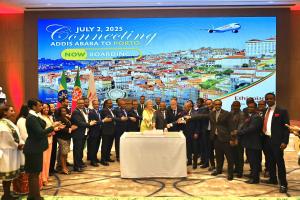
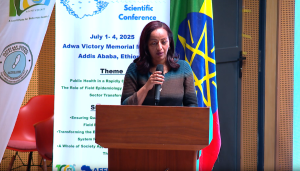

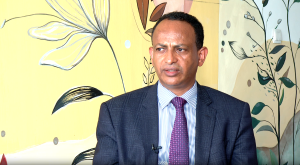
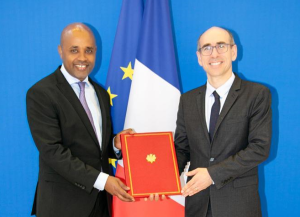






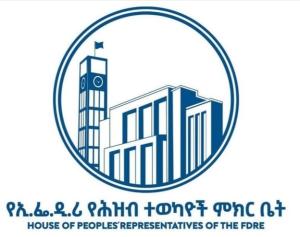

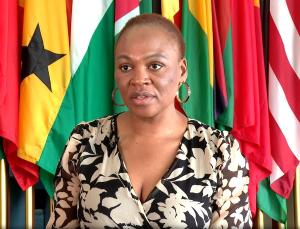
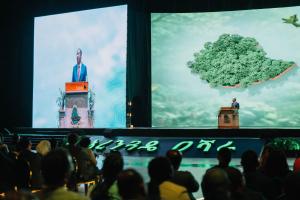
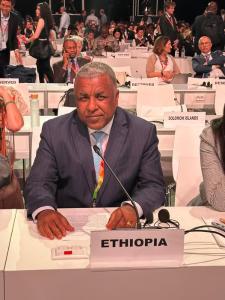
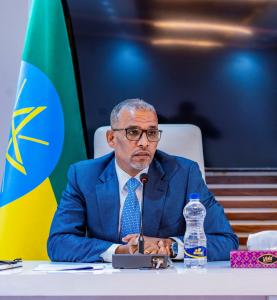
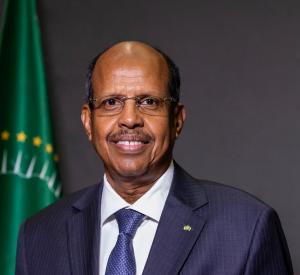
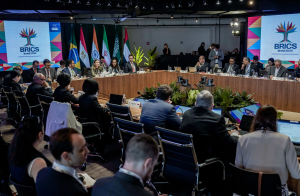
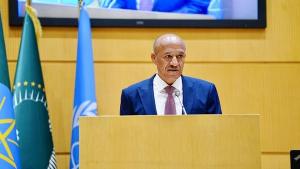
.jpg)
.jpg)

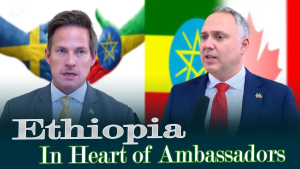
.png)
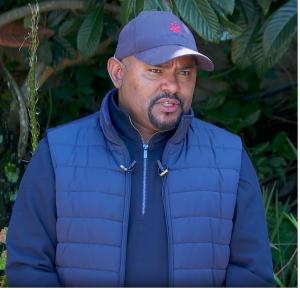
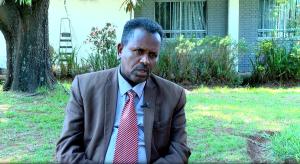
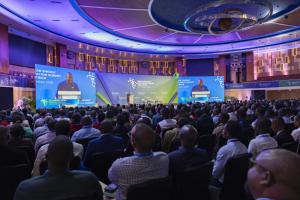
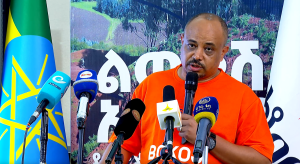
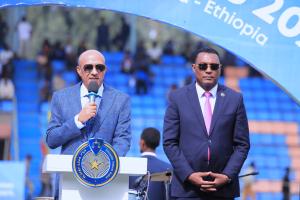


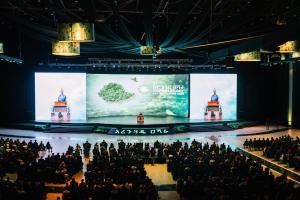
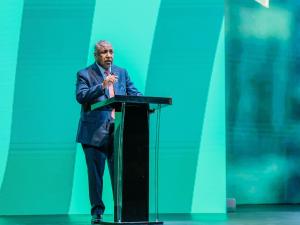
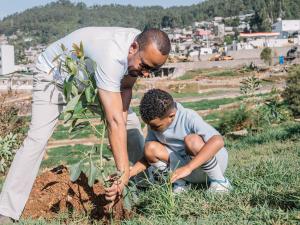

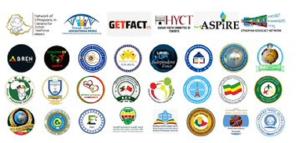

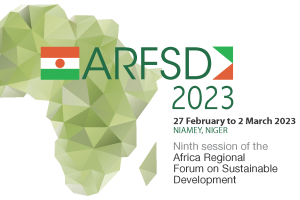
.jpg)
